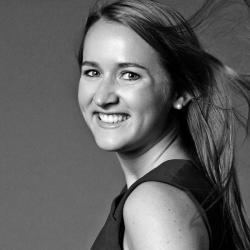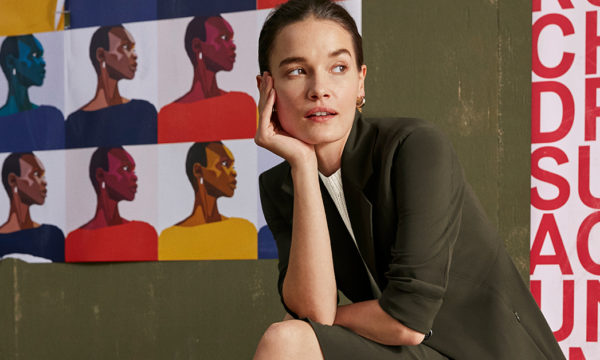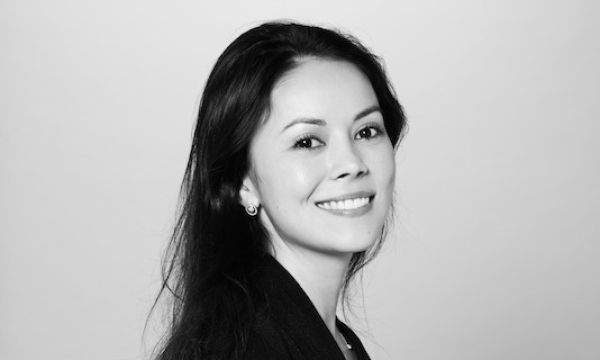The Many Faces of Career Crisis
January 20, 2017 | Filed in: Your Career
We’ve interviewed some pretty phenomenal women over the years, and if there’s one thing they’ve all had in common, it’s that their professional paths haven’t been smooth. From navigating self-doubt to getting fired, they’ve hit just about every type of career bump there is. The takeaway from their narratives? While there’s no formula for dealing with tough moments, there’s much to be gleaned from the struggle itself.
1. Sallie Krawcheck, Co-founder and CEO of Ellevest
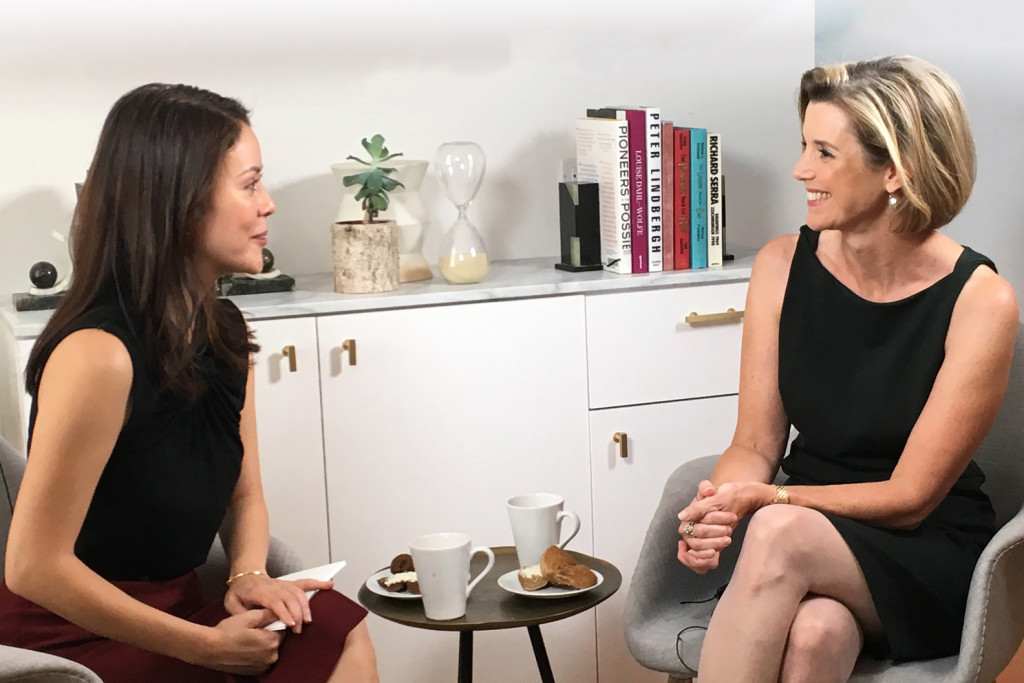
Sallie wears the Lydia dress while being interviewed by our CEO, Sarah.
“I am the only woman on the planet who has been fired on the front page of the Wall Street Journal. Twice! That is face-plant level… I’ve always been willing to take risks that others weren’t. I was told early in my career, ‘Don’t stick your head out, Wall Street is a place where you can make thousands, millions of dollars, by being mediocre.’ And I said, you know what? I’m going to take some risks and see how far I can go.”
“The best career advice I ever got came from my mother, who never worked a day outside the home in her life. I had just had my second child, a little girl, and my mother came up to visit. I was a research analyst [at the time], and we sat outside a restaurant and I started to cry. I said, ‘I’ve got a toddler, I’ve got a baby, I’ve got a job, I’ve got a husband, I can’t sleep, I’m so tired, I don’t know if I can do this.’ My mother turned to me, and said in that way only mothers can, ‘Well, of course you can! You’re just going to be tired for a while.’ And I thought, ‘Oh! Okay! Of course I can do this, I’m just going to be tired for a while.’ And on top of that advice, I’ve heard other women say of those early years, ‘Hold on. If you want to stay in business, hold on by your fingertips.’”
2. Cindy Gallop, Founder and CEO of IfWeRanTheWorld
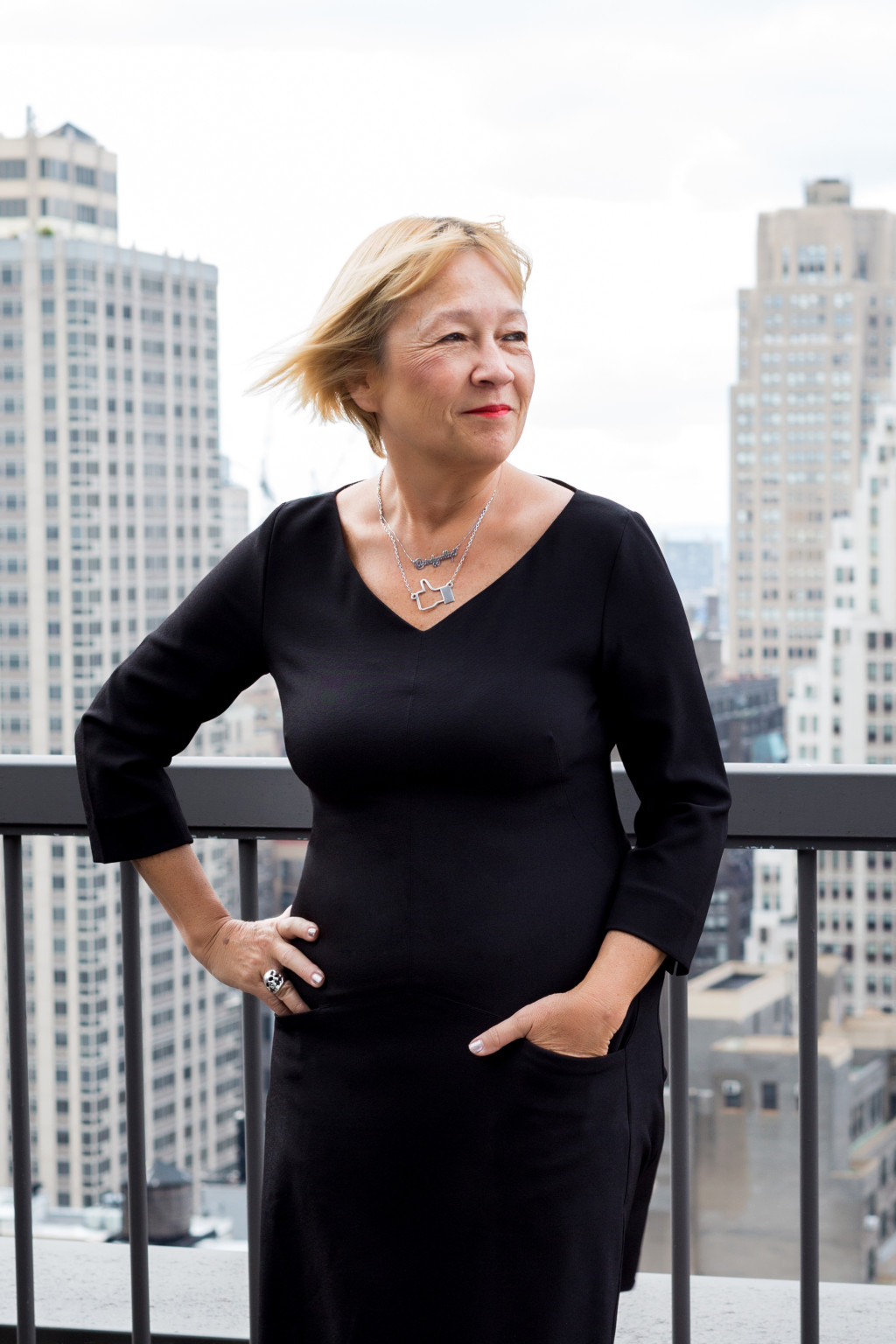
Cindy wears the Alexandra dress.
“I had my own personal midlife crisis in 2005, when I turned 45. I decided to take stock of my life and what I wanted to do for the second half of it, and I realized, ‘Oh my god, I’ve worked for 16 years at the same advertising agency.’ It was time to do something different, and I had to decide what that would be. A vast amount of thought ensued, and I decided that if I wanted to review every possible option open to me, maybe the best thing to do would be to put myself on the market. So I took a massive leap into the unknown, and I resigned as chairman of [advertising agency BBH] in New York in the summer of 2005 without a job to go to, and it’s the best thing I ever did. I was very lucky—lots of things came to me, 90 percent of which I never would have thought of myself. I decided to be an employment slut. I took every meeting and every phone call, with no preconceived notions. It was a fascinating exploration, and it was as good at telling me what I didn’t want to do as what I did.”
3. Sloane Crosley, Author
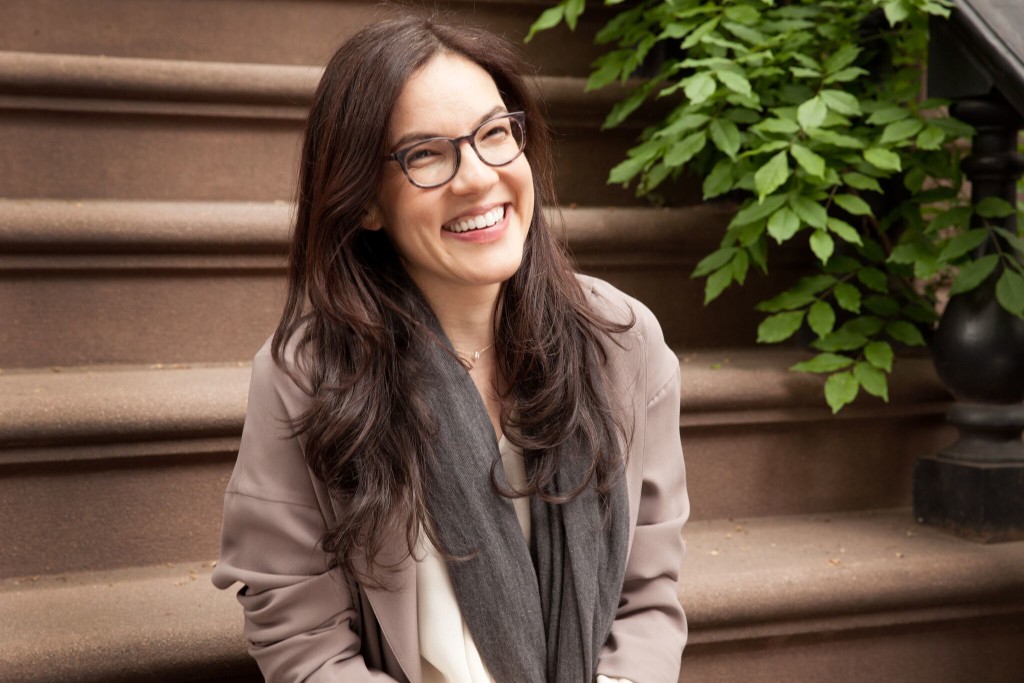
Sloane wears the infinity scarf and the single bezel necklace.
“I hoped to do both jobs [writing in addition to working as a book publicist at Random House] forever, but at a certain point, it became untenable. At first, there were these halcyon days when the writing was helping the day job, and it was a symbiotic relationship. But it eventually became very stressful, and I felt like the only one watching the throne. It got to the point where I was taking all my vacation days to go on my own book tour, and the overlap between the two was getting weird. So my decision to quit was a slow worm in the brain—a gradual build, rather than a clear breaking point. I didn’t have a book deal when I quit, but I had published two books, and I had a column gig, and I felt that I was finally willing to roll the dice on myself. Still, it was terrifying. I’d never worked freelance before in my life, and everyone was like, ‘Oh my god, how much are you loving it?’ And the truth was not at all, at first. I was so lost and spinning. I made rules for myself, to have the structure that my job had given me previously—like, ‘get up early to write’—but I break my rules all the time. When you don’t have a traditional job, you have to define your own success in a new way.”
4. Elizabeth Burton, Senior Investment Analyst at the Maryland State Retirement and Pension System
![Elizabeth [right] wears the Emily dress in deep forest. Lindsay [left] wears the Alexa dress in pebble.](https://mdash.mmlafleur.com/wp-content/uploads/2017/01/MML_LB-3144-1024x683.jpg)
Elizabeth [right] wears the Emily dress. Lindsay [left] wears the Alexa dress.
“After I had my first child, in 2014, I had two very difficult years. I was looking for a new job, and none of my interviews were going well. It started to pile up, all this doubt— ‘Am I smart? Can I do this? I’m an idiot. I’m never going to have a job again.’ It seemed like every effort I made kept falling flat. And then this opportunity for my current job came along, and it worked out. [My sister] Lindsay was very instrumental in helping me get through those two years, and making me think hard about what I wanted.”
5. Annie Dean, Co-founder and Co-CEO of Werk
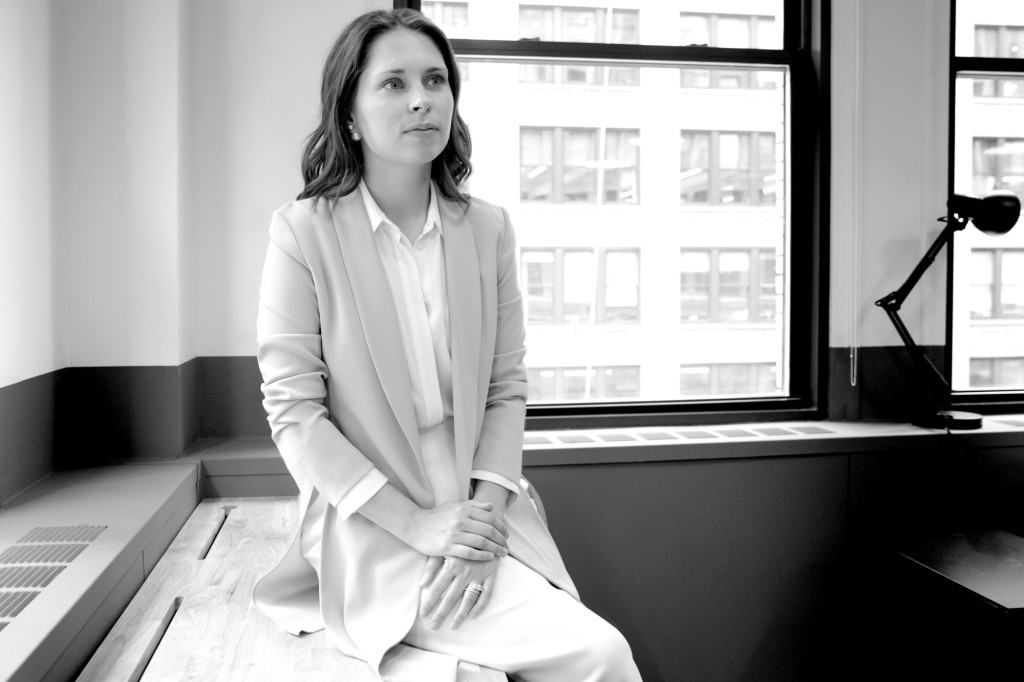
Annie wears the Dietrich jacket, the Williamsburg skirt, and the Lagarde shirt.
“I spent six years as a lawyer in corporate real estate, and when my second son was born, I realized I couldn’t spend another day doing that job. I had so much creative energy that I wasn’t using, and I had to find an outlet. So while I was on maternity leave, I called all my friends and said, ‘I want to meet the smartest women you know. I want to know what they’re doing.’ And my friend Sarah recommended that I talk to Anna [Auerbach]. It turned out we had a lot in common, in terms of our interests and life experiences, and she told me about this idea she’d been sitting on for about a year—the concept for Werk. I hung up the phone and was like, ‘What do I do now? I really want to start this business with her!'”
6. Katherine Ryder, Founder and CEO of Maven
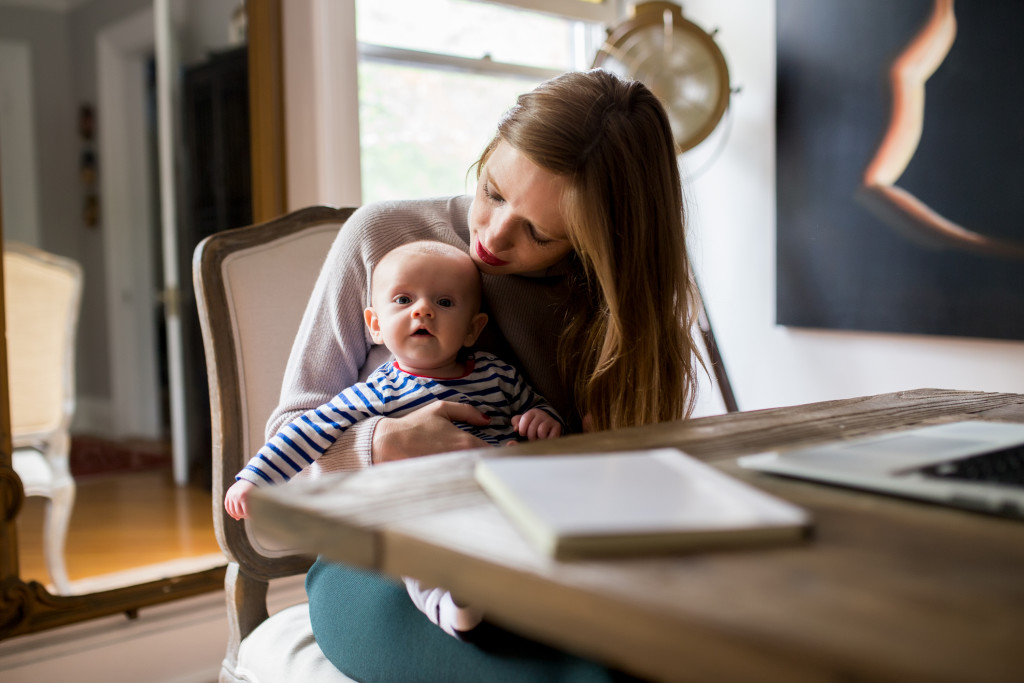
Katherine (with her son Theo) in the Arbus sweater and the Harlem skirt.
“I co-founded my first company in Singapore, while I was still working for The Economist, and it was a total failure. It was an online travel business, geared towards group travel for the Chinese market. I still think the idea was great, but we were pretty clueless when it came to operations. My dad was like, ‘I know you don’t like to listen to me, but if I can give you one piece of advice: Go get other experience before starting a business.’ So that was my next step… I knew I wanted to change careers, but it was sort of a nightmare scenario. My husband got a job in London, so we moved there, and I didn’t have a network at all. I had maybe 120 meetings. I was very scared that I was facing the beginning of the end of my career. Then I met a partner at a venture capital firm, and he was looking for an associate, and he had a soft spot for journalists, so he hired me in two days. It was partly luck, but also a game of numbers—I worked really hard to meet a lot of people, and it took time.”






